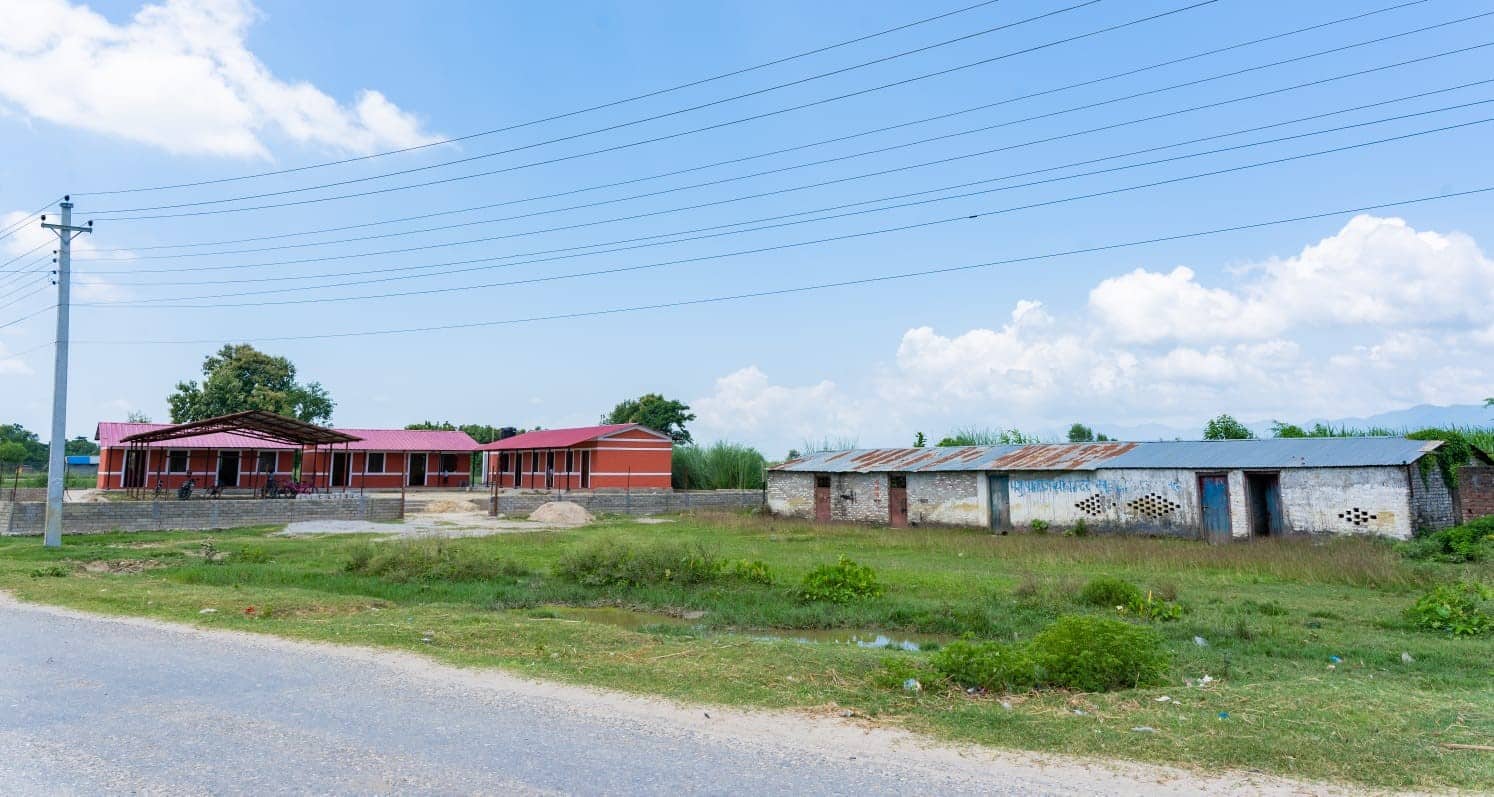Case Study
“March for Nepal” – A global citizenship initiative by The High School of Glasgow Junior School

Background
In March 2025, pupils at The High School of Glasgow Junior School embarked on a powerful journey of empathy and activism through the March for Nepal campaign—a sponsored walk with a purpose. This initiative was designed to raise both awareness and funds for the reconstruction of schools in Nepal, devastated by natural disasters such as earthquakes and floods.
The campaign was sparked when a parent at the Junior School highlighted the work of the University of Strathclyde’s Engineering for Development team, who have been building disaster-resilient schools in Nepal since 2015. Inspired by this mission, the school’s Global Citizenship Committee—a pupil-led body—took action.
Challenge
Nepal’s education infrastructure has suffered repeated blows from natural disasters. The 2015 earthquake alone damaged or destroyed over 8,000 schools. More recently, the Joli Pipal School in the remote Katali region was rendered structurally unsafe due to further quakes and flooding, forcing pupils to travel long distances or learn in precarious outdoor conditions.
The University of Strathclyde’s team needed continued funding and awareness to support the rebuilding of Joli Pipal and other affected schools. That’s where the Junior School pupils stepped in.
Solution
The March for Nepal initiative challenged pupils to walk distances that mirrored the daily journeys faced by Nepalese students—seven miles for younger pupils and 14 miles for older ones—totalling a collective goal of 2268 miles if every child reached their target, nearly half the distance from Scotland to Nepal.
Throughout March, children laced up their trainers and logged miles across a series of sponsored walks. The event was entirely pupil-led and driven by the Global Citizenship Committee, supported by school staff and families.
In total, the initiative raised an impressive £4001.83 (including Gift Aid), all directed to the Strathclyde Engineering for Development team’s efforts in Nepal.
Impact
- Fundraising Outcome: The funds will directly contribute to the rebuilding of Joli Pipal School in Nepal.
- Awareness: The initiative highlighted global education inequality and climate vulnerability among young pupils in Scotland.
- Skill Development: Pupils engaged in leadership, planning, and civic action through their committee roles.
- Partnership Building: Strengthened ties between the school and the University of Strathclyde, setting the stage for future collaborative global citizenship projects.
The impact in Nepal is tangible. The University of Strathclyde, in collaboration with Community Impact Nepal, has already rebuilt several schools using eco-friendly, interlocking earth bricks. These buildings are not only earthquake- and flood-resistant but also support local economies by employing local labour and small businesses.


Voices from the Project
Ms Heather Fuller, Head Teacher at The High School of Glasgow Junior School, said: “When a member of our parent body flagged up the important work the University of Strathclyde’s Engineering for Development team is doing to construct schools in Nepal destroyed by natural disasters, it felt like a good fit for a fundraiser led by Junior School pupils. Education is vital for all children and there is something meaningful about pupils in Scotland doing what they can to help pupils over 4500 miles away to access an education.
Every pupil at the Junior School is a member of a pupil committee, designed to give children the confidence to make decisions, take action and use their voice to effect positive change. The Global Citizenship Committee consists of children from across all the primary school year groups and focuses on the fact that every person is a citizen of the world, with a civic duty as part of this global community. The March for Nepal sponsored walks was their idea and they executed it expertly with the help of my colleagues. It was heartening to see so many Junior School children, their families and staff get behind this and walk many miles to raise funds and awareness for this important project in Nepal by the University of Strathclyde’s Engineering for Development team.”
Christine Donald, Director Strathclyde Engineering for Development, said: “Sincere thanks to everyone who walked and donated to ‘March for Nepal’. It is an amazing amount of money and it will really help with the new school build which has now commenced. The teachers and pupils at Joli Pipal School are so happy and excited that they are getting a new school and have sent their thanks to the Junior School pupils at The High School of Glasgow for their help.”
Conclusion
The March for Nepal initiative stands as a shining example of what happens when education, empathy, and action meet. Through a simple but powerful series of walks, the pupils at The High School of Glasgow Junior School connected deeply with a global issue and helped pave the way to a safer, stronger educational future for children in Nepal.